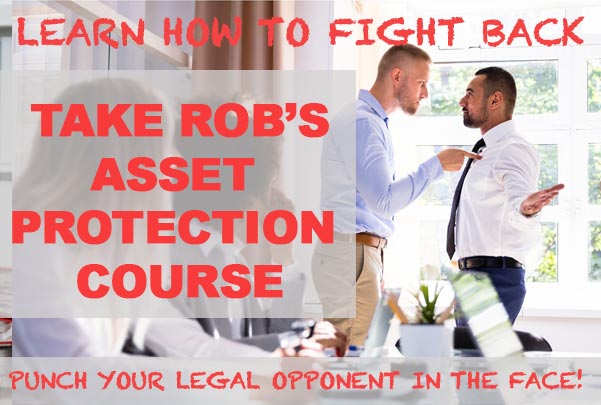Family limited partnerships and IRS scrutiny
A family limited partnership, like other limited partnerships, is a form of business that consists of one general partner and one or more limited partners. The difference in a family limited partnership, as compared to other partnerships, is that the people involved are usually members of the same family.
An advantage of a well-executed family limited partnership is a reduction in federal estate and gift taxes. Instead of transferring assets directly to beneficiaries, an individual may transfer interests in a limited partnership. Since interest in a family limited partnership is not marketable and a limited partner does not control management of the enterprise, the value of interests in a family limited partnership usually can be discounted by anywhere from 25% to 50%, with a corresponding reduction in tax liability.
As with many transactions involving family members, the IRS has a history of casting a skeptical eye on family limited partnerships. Basically, the intention of the IRS is on assuring that the tax advantages of any particular family limited partnership are not the main reason for its existence. If the family limited partnership is found to be a sham, the IRS may challenge the valuation discount and even the very existence of the partnership.
In one recent case, a federal appeals court found a family limited partnership to be legitimate in spite of some circumstances which aroused IRS suspicion. A 96-year-old woman put $2.5 million into a family limited partnership while setting aside $450,000 for her personal expenses. Two months later, she passed away. The fact that the transfer included interests that required active management and that no personal assets, such as a house or car, were involved weighed heavily in favor of the family limited partnership. Also, the person who made the transfer into the family limited partnership did not manage it. Most important, oil and gas operations provided an essential legitimate business purpose for the family limited partnership.
In yet another case similar in many respects, including the age of the person who transferred the assets to the family limited partnership, the assets were found to be subject to the estate tax because the family limited partnership had not been formed for a valid business purpose. Transactions made by the family limited partnership never went outside the family circle and amounted to financing the needs of family members.
What has emerged from the cases are some rules of thumb for setting up and running a family limited partnership in order to realize its tax benefits without attracting the attention of the IRS:
Give real business reasons for the family limited partnership that can be substantiated by individuals outside it;
Never allow the person transferring assets into the family limited partnership transfer all of his assets or use the partnership to pay personal expenses;
Assign control over the family limited partnership to a general partner who is not the same person funding the family limited partnership. In most cases, the general partner is an entity, such as a limited liability company;
Have some actively managed assets in the Family limited partnership;
Follow the formalities for setting up and operating the family limited partnership, which includes separate accounts and scrupulous adherence to formal accounting practices.

Family Limited Partnerships
-
The origin of Family Limited Partnerships (FLPs)
-
How Family Limited Partnerships (FLPs) work
-
Family Limited Partnership Review
-
Issues about asset protection
-
Family limited partnerships – Charging order protection
- Future creditors and fraudulent transfers
-
Charging Order Protection
-
Uniform Limited Partnership Act – Section19
-
Family Limited Partnerships and the benefits of leverage
-
Family Limited Partnership (FLP) frequently asked questions
-
Family Limited Partnerships (FLPs) and creditor protection
-
Family Limited Partnerships (FLPs): keeping the family business in the family
-
The differences between Family Limited Partnerships and General Partnerships
- Family Limited Partnerships and Family Limited Liability Companies work well
- Family Limited Partnerships and IRS scrutiny
- Building wealth with a Family Limited Partnership
- Carefully planned Family Limited Partnerships can avoid IRS scrutiny
- Court decision could affect Family Limited Partnerships
- Family Limited Partnership structures
- Defects in Family Limited Partnerships – Part One
- Defects in Family Limited Partnerships – Part Two
- Defects in Family Limited Partnerships – Part Three
- Properly structuring a Family Limited Partnership (FLP) – Part One
- Properly structuring a Family Limited Partnership – Part Two
- Properly structuring a Family Limited Partnership – Part Three
- Using Family Limited Partnerships for planning estates
- Family Limited Partnerships (FLPs) and Family Limited Liability Companies (FLLCs)
- What are Family Limited Partnerships (FLPs)?
- Is a Family Limited Partnership (FLP) good estate planning?
- Maintenance List for Family Limited Partnerships – Part One
- Maintenance List for Family Limited Partnerships – Part Two
- Maintenance List for Family Limited Partnerships -Part Three
- Is a Family Limited Partnership (FLP) a good Estate Planning tool?
- The attraction of Family Limited Partnerships (FLPs)
- When Family Limited Partnerships are suitable
- Family Limited Partnership Review
- The uses and benefits of Family Limited Partnerships (FLPs)
- Family Limited Partnerships – an overview
- Family Limited Partnerships (FLPs) attract IRS investigations
- Family Limited Partnership “Do’s and Don’ts”
- Family Limited Partnerships facing increased scrutiny by the IRS
newsletter signup
[forminator_form id=”1485″]

FIGHTING BACK!
